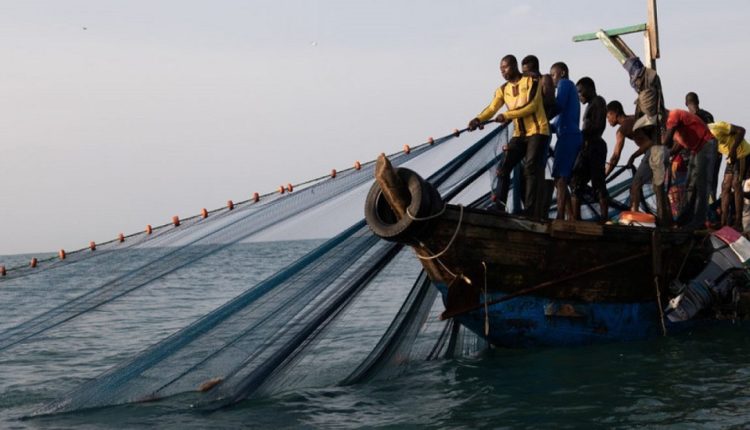The Ghana Maritime Authority (GMA) has started the process to properly regulate fishing activities. The authority seeks to better protect lives and improve the livelihoods of those involved in the fishing industry.
As a result, the GMA is working hard to get the Cape Town Agreement (CTA) and the International Labour Organization (ILO) Work in Fishing Convention 2007 ratified so that it can better control the industry.
Speaking at a meeting on ratification of the two conventions, Thomas Alonsi stated that there are pertinent issues in the sector which needs address by his outfit.
“The Ghana Maritime Authority receives several complaints concerning the welfare of fishers. It is obvious that a lot needs to be done to sanitize Ghana’s fishing industry and make the fishing profession more desirable.” Thomas Alonsi, GMA’s Director General said.
He said his outfit therefore requires some legal backing that will empower them to protect the welfare of fishers. Thus, the ratification of both the CTA and International Labour Organization (ILO) Work in Fishing Convention is very necessary.
Mr Alonsi went on to say that study by ILO found that about 24,000 fishers die per year in the fishing industry. This is ten times higher than deaths on merchant ships, he added. As a result, it’s worrying that one of the world’s most dangerous industries, fishing, is also one of the least regulated in the maritime industry.
“Fishing vessel operators neglect the safety and maintenance of their vessels. They indulge in illegal fishing and under-report their catch. They also endanger the lives of fishers by cutting corners in the management of their vessels…” he added.
Furthermore, he pointed out that most of the fishing vessels usually lack sufficient onboard safety equipment. They operate for extended periods without undergoing safety inspections.
The Cape Town Agreement
The Cape Town Agreement (CTA) is one that seeks to enhance safety onboard fishing vessels. It is an internationally binding agreement that will facilitate better control of fishing vessels’ safety by flag, port and coastal states. It will also contribute to the fight against illegal, unreported and unregulated (IUU) fishing.
Additionally, the CTA allows progressive implementation of regulations on life saving equipment, emergency procedures, among others to existing large fishing vessels for 5-10 years. In order for this Convention to come into force, twenty-two member states with a combined total of 3,600 or more qualifying fishing vessels are needed. As of April 6, 2021, sixteen states namely Denmark, Finland, Germany, Netherlands, South Africa, among others, have ratified the convention.
The ILO Work in Fishing Convention
The main objective of the ILO Work in Fishing Convention is for decent living and working conditions onboard fishing vessel. As with all ILO Conventions, this convention is to ensure social justice. It is advocating for a safe and secure workplace that complies with safety standards. These includes food, accommodation, medical care at sea, fair employment practices, insurance and liability.
Moreover, the convention aims at ensuring that fisher have improved occupational safety and health and medical care at sea. It also ensures fishers have the protection of a written work agreement and also have the same social security protection as other workers. It also seeks to ensure that fishing vessels are constructed and maintained so that fishers have decent living conditions on board.


Comments are closed.